‘A rare individual.’ How one artist in Danville inspired a generation of glass blowers
For many glass artists in Kentucky, their passion for the art stems back to one person: Stephen Rolfe Powell, who built a glass studio at Centre College.
Powell was an internationally known glass artist, winning awards both as an artist and professor. He spent more than three decades teaching and creating art at Centre College, from the time he was a student until his sudden death at age 67 in 2019. He created the college’s hot glass program while continuing to work as an artist and exhibit his own work.
The college honored Powell and his work with a memorial dedication earlier this fall. Located in front of the Norton Center for the Arts, the sculpture is 25-feet-tall and is in the shape of Powell’s iconic glass vessels. It features colorful glass discs, as well as an illuminated circle in the ground with shards of glass from Powell’s pieces.
The memorial, designed and spearheaded by one of his former students, Brook Forrest White, also features three benches paying homage to Powell, and a small amphitheater that will serve as an outdoor classroom. White said he hopes the memorial will be a “gathering space” on campus, and a reminder of Powell’s work that started at Centre.
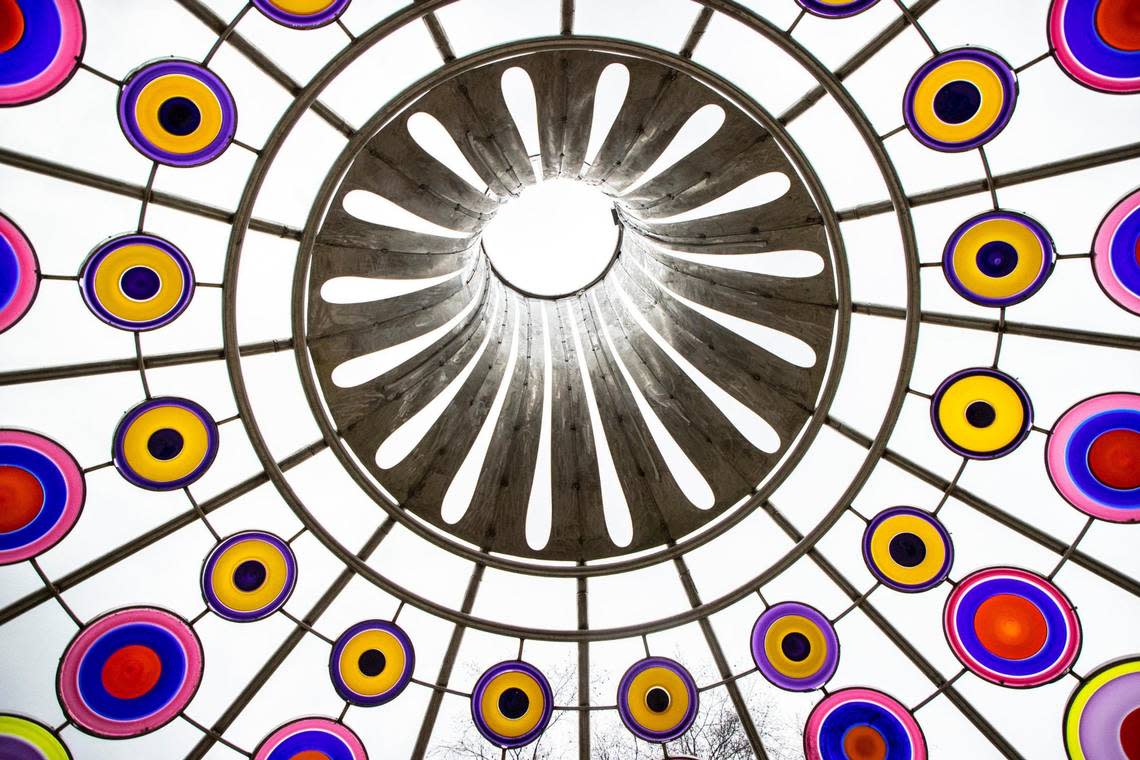
One day when White was working on the memorial, two people came and sat in the outdoor classroom. They pulled out instruments and started playing together. For White, that was a sign that the memorial was “working already,” and bringing people together.
“I wanted to do one last Steve project, in true Steve-style,” White said of the memorial. “This is what Steve taught me to do, a crazy project like this.”
Powell’s career
Powell came to Centre as a psychology major in 1970 and played tennis, where he met Mark Lucas. Lucas, who is now a professor of English at Centre, said Powell’s leadership and energy was evident even as a student.
Powell started taking art classes at Centre, working with paint and ceramics. Eventually, he discovered glass art and turned his attention there. Several years after graduating from Centre, Lucas returned to teach. There was a temporary position open for an art professor, and Powell returned as well. There, he started building what would become the glass art program.
It started with one furnace on the porch of the Norton Center, where Powell would melt down old Coke bottles and make them into new shapes, Lucas said. Then, he began experimenting with different glass techniques and adding color. He built a platform to be able to create bigger creations, standing and molding glass to see how big he could make his creations.
“He was always going for bigger and more colorful, and that also meant more athletic,” Lucas said. “You just had to be strong and really lean and in shape to do what he did.”
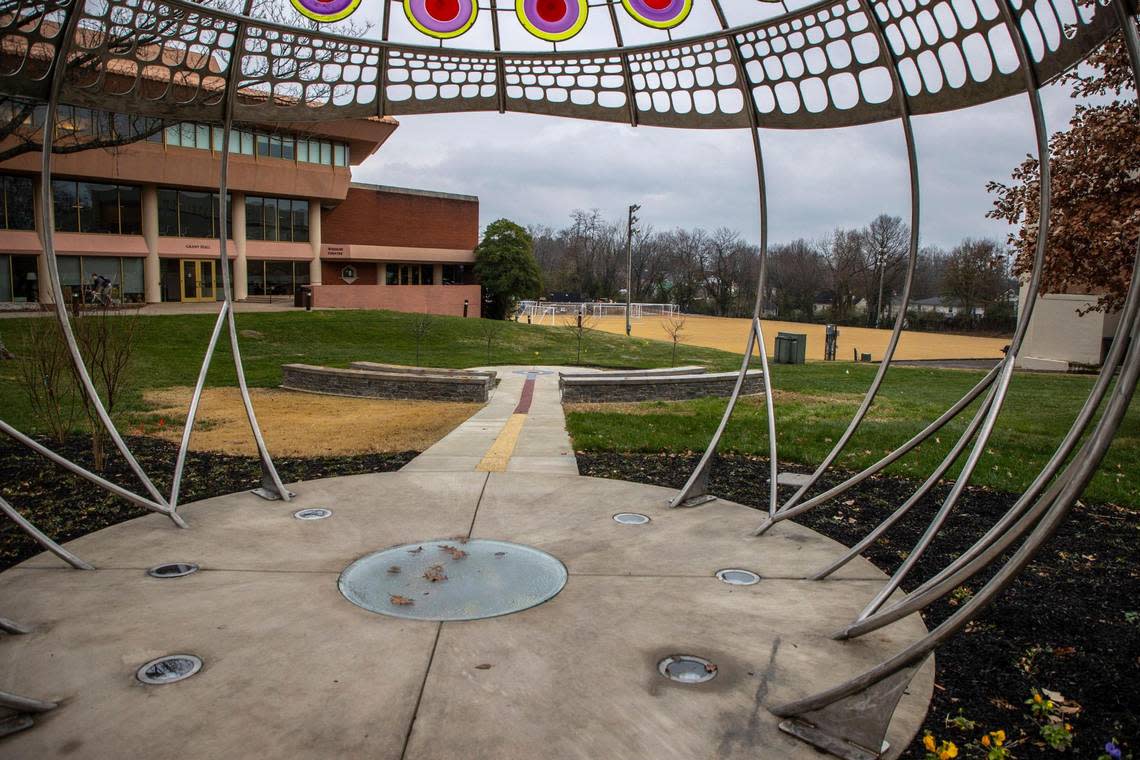
Eventually, it became unsafe for Powell to keep using the furnace in the Norton Center, so he relocated to the Jones Visual Arts Center, where the hot glass program still operates. He became known for creating large, colorful glass vessels. He experimented with multiple styles of glass art and glass blowing, incorporating colors and different shapes.
“People wouldn’t call him a perfectionist,” Lucas said. “He’s not that kind of rigid person. But he became obsessed with perfection in the making of his style of glass.”
Powell had a way of creating a collaborative environment, Lucas and White said. He brought students into the studio as assistants and helped them pursue careers after graduation. He inspired students who were not art majors to take up glassblowing, including White.
“He changed my life,” White said. “I think for the group of us that were the main assistants, he changed our lives whether we continued with glass or not, he challenged you to look at the world differently. To question the givens and to not take things at face value, but to think about it deeper.”
Lucas, White and Ché Rhodes, another former student, all described him as having an abundance of energy. That energy drew students into his studio and into his class, inspiring their interest in glass art.
“It didn’t matter what he was teaching,” White said. “He could have taught basket weaving and he could have made it super exciting because of who he was, his charisma, his energy.”
Rhodes said that Powell also modeled a hard work ethic, often working long hours in the studio at Centre to create new art. Students often saw Powell at work, and had the chance to work alongside him, Rhodes said.
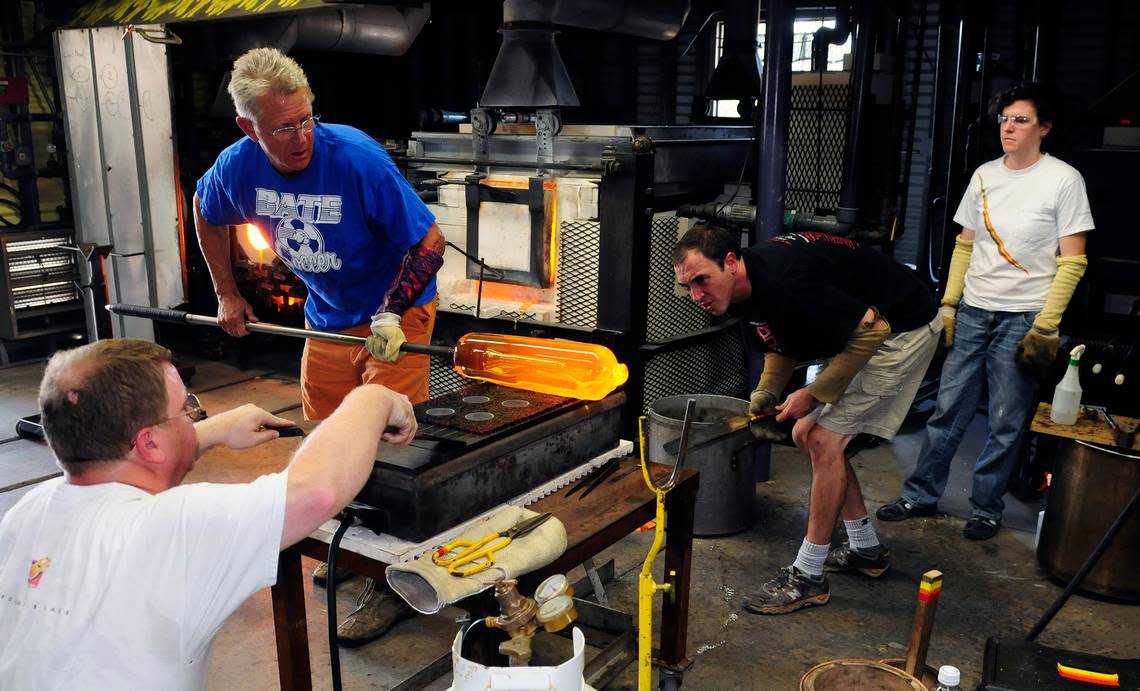
Glass art programs in Kentucky
Through his role at Centre, Powell impacted an entire region of glass artists. Centre is a small, private college in Danville, with about 1,400 students enrolled.
The hot glass program at Centre is one of two similar programs in Kentucky. Another glass program exists at the University of Louisville, which was launched in 2005 by Rhodes. Powell was heavily involved in the start of the program at UofL, Rhodes said.
Glass art programs are not common, and exist at only a handful of schools across the country. Programs tend to exist in clusters across the country, with a few in New England, a few in California and a few in Texas. In this region, there are two programs in Kentucky, along with some programs in Ohio and Illinois. Powell’s influence is evident throughout the region, Rhodes said.
As an instructor, Rhodes said he draws heavily on Powell’s influence.
“I wouldn’t be here if it weren’t for him,” Rhodes said. “Everything from just the sort of classroom atmosphere of trying to be an effective instructor, but also making sure we’re having a good time, to the technical information and historical information about glass.”
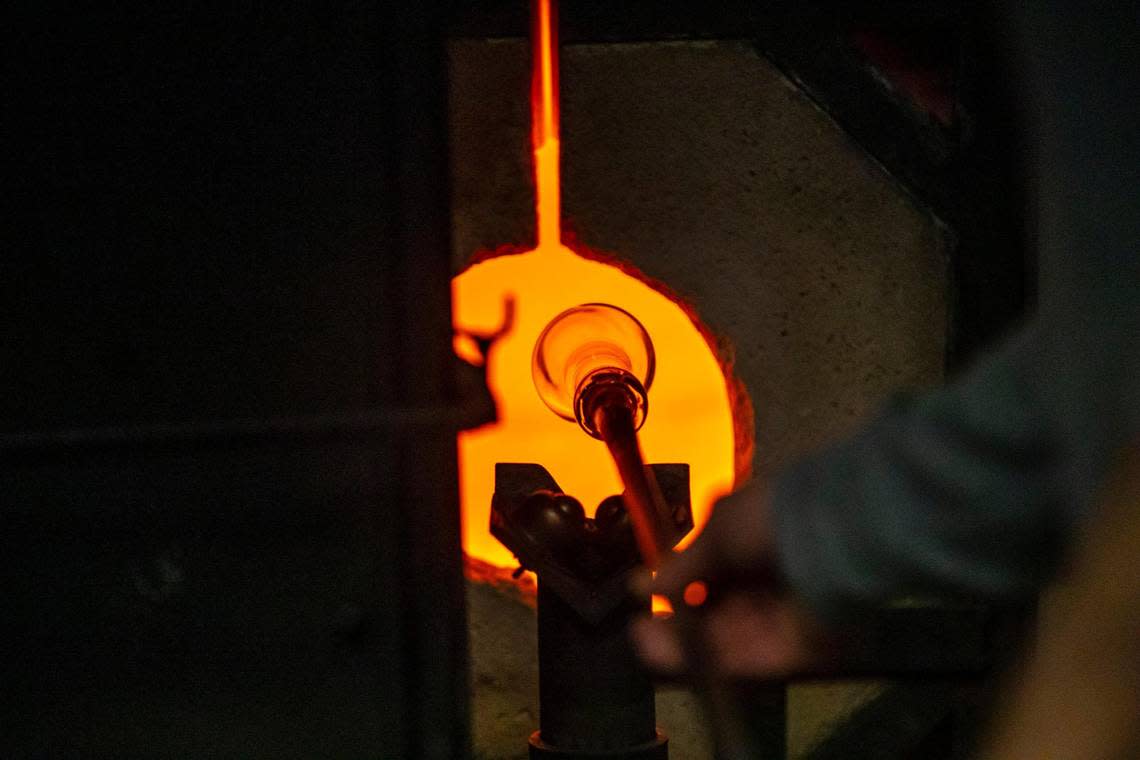
Powell was known internationally for his work, exhibiting his art at the prestigious glass show in Venice in 1998, but kept teaching at Centre until his death. Through his success, Powell earned a reputation as the “nice guy from Kentucky,” said Patrick Martin, one of Powell’s former students who currently teaches in the hot glass program at Centre. Powell was quick to use his connections in the art world to help students find apprenticeships or set up their own studios, Martin said.
“He made his success Centre’s success, and his students’ success,” Martin said.
In the days after Powell’s death, Rhodes said he talked to many former students. Nearly everyone said they had talked to Powell in recent days. Rhodes said he was struck by how Powell managed to maintain relationships with former students and other glass artists, and described him as “generous,” both with his time and knowledge.
“He was a superb person in many different ways, and I realized I don’t know anybody else like him,” Rhodes said. “He enriched so many peoples’ lives deeply. Most people don’t get a chance to meet someone like that in their lifetime, such a rare individual.”
The hot glass program at Centre started small, with around 10 students in the first class, Martin said. Now, the program has more than tripled in size. Classes fill up quickly, and it’s become an unofficial tradition for seniors, no matter their major, to take a glass art class, Lucas said.
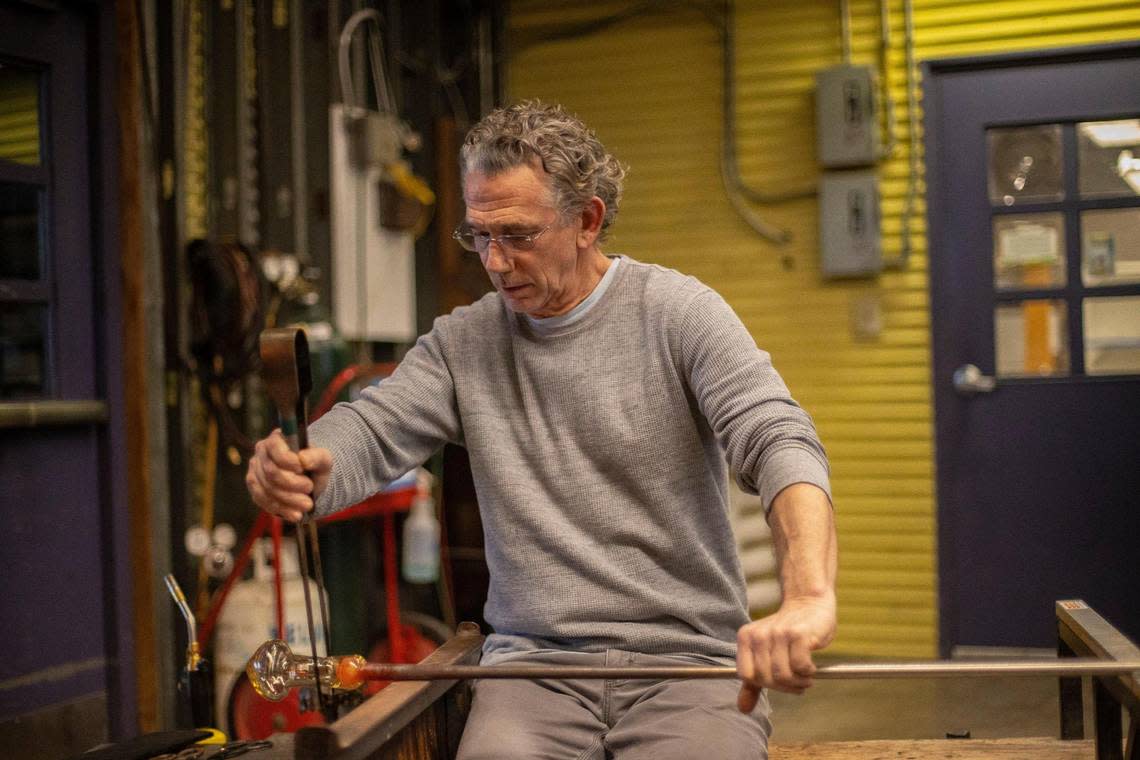
Powell also inspired artists around the region. There are glass studios in Kentucky and Tennessee that launched with the help of Powell, White said, including his own in Louisville.
In many ways, working with Powell felt like “being in a band,” White said. Powell would bring students alongside him as he worked, and his energy was infectious, he said.
“Those early years, the first two or three years as a student, were instrumental in getting to hang out with him,” White said. “He was a dad figure, a big brother figure. Being on his team was like being in a band, or being on a sports team.”
